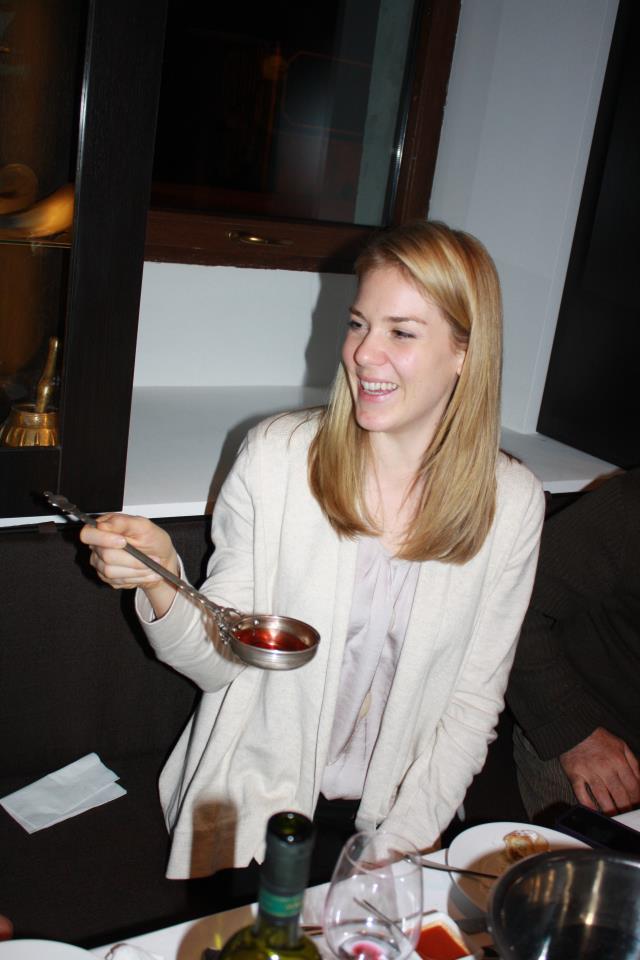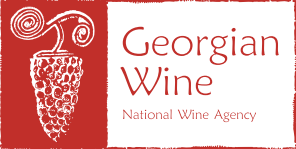- Posted on Fri, 11/09/2012 - 13:18

by Jessica Bell
Muslims head to Mecca, Jews and Christians to Jerusalem. I journeyed 6,000 miles to The Republic of Georgia to pay homage to the birthplace of winemaking. Few recognize its cultural gravitas and even fewer travel here, and yet, for Georgians the "gospel" of wine is arguably as important as their religion. Embraced so universally and fervently, wine, and later winemaking, emanated from Georgia only as quickly and extensively as humans could travel, until all corners of the earth recognized its name.
Waves of wine eventually crashed on all shores of the world, but I often wonder to what extent it affected those living there. Was it coincidence, correlation, or, dare I suggest, causation, that the founding tenets of winemaking emerged alongside the first signs of civilization? Crudely put, man was drinking wine as his grunts became conversation, and copper tools replaced stone ones.
From the time of its debut nearly 8,000 years ago until the present day, wine has been recognized for its socially transformative powers. Greek historian Thucydides observed in the 5th century BC, "The peoples of the Mediterranean began to emerge from barbarism when they learnt to cultivate the olive and the vine." Twenty-five hundred years later, Ernest Hemingway, undoubtedly speaking from extensive personal experience, stated, "Wine is one of the most civilized things in the world".
If wine does, in fact, have a history that predates most modern religions, is present in more homes than any single religion, and can profoundly impact the people with whom it comes into contact; can we not classify wine as a cultural phenomenon comparable to that of religion?
Suggesting that wine is comparable in some ways to the great religions of the world is, at the least, audacious and presumptuous... until you visit Georgia, and see this unique marriage of wine and religion through the Georgians' eyes. In no other place in the world are religion and wine so intertwined that separating the two can be like pulling apart the entangled tendrils of two vines.
Georgia's physical location provides the first clue as to why wine and religion may be so intricately connected in Georgia; the birthplaces of both human civilization, and consequently religion, and wine not only occurred around the same time, but they also originated from the same geographical area. South of Russia, north of Turkey and bordering the Black Sea, present-day Georgia is less than 500 miles north of the world's first civilizations, which are now present-day Syria and Iraq, among other countries.
This stage in human development coincided with wine's transformation from a product of chance to one of thought and planning; a transformation which is believed to have taken place in Georgia. The European Union has recognized Georgia's exclusive right to this assertion as all roads, linguistic, scientific and otherwise, lead back to Georgia as the Cradle of Wine.
Georgia speaks Kartuli, and ghvino in Kartuli, means vino, vin, wein... wine. The linguistic roadmap in the previous sentence illustrates why linguists believe ghvino is the root word for "wine" in most other western languages. It is science, however, which solidifies Georgia's claim to fame. Grape pips from domesticated vines found at the bottom of an amphora in Georgia have been dated to be 6,000-8,000 years old and Georgia is home to the oldest wine vessel in the world. The ceramic pot, confirmed to be 5,000-6,000 years old, is known in some parts of Georgia as qvevri and is an ancestor to those still being used throughout modern day Georgia.
Six thousand years of cross-pollination between wine and civilization in Georgia has led to a history, culture, tradition and, most especially religion, which are all littered with enological allusions. Perhaps the most salient example of this muddled identity is captured in the story about Georgia's conversion to Christianity:
After Jesus' crucifixion in the first century, his apostles arrived in Georgia, but were unsuccessful in converting Georgia, a pagan country. St. Nino from Cappadocia came to Georgia in the 4th century, following a vision from Mary, mother of Jesus. In it, Mary gives Nino a crucifix made out of grapevines and tells her to go to Georgia. Mary promises to be Nino's protector. When Nino awoke, she found the grapevine cross in her hand. She tied the cross in her hair and made the journey to Georgia, where she successfully helped convert Georgians to Christianity.
Georgia was among the first countries to accept Christianity and declared it their state religion in 322 AD. The grapevine cross continues to be an important symbol of the Georgian Orthodox Church, adorning the facades and interiors of many churches.
The legend of Nino and her vine cross is clearly one of the most lucid and straightforward examples of how wine and religion can become so tangled in Georgia, that they are practically inseparable. From the momentous to the mundane, Georgians' lives abound with the comingling of wine and religion, arguably the two forces that most define the Georgian people; 85% of Georgians practice Eastern Orthodox Christianity and there is relatively little domestic consumption of commercial Georgian wine... because most Georgians make their own wine.
Throughout my month in Georgia, I saw momentous examples of wine and religion occupying the same space. At the Alaverdi Monastery, I interviewed Eastern Orthodox monks who continue the uninterrupted 2500-year-old tradition of winemaking. And I saw the mundane, but no less meaningful in my heart. Upon completion of my work in Georgia, I received two gifts from my students; a rare bottle of Georgian wine and a ceramic vine cross.
For Georgians, wine and religion are not only inextricable, but also arguably equally important. They represent the heart and mind of the Georgian people. In the absence of one, the other would fail to function, and the Georgian people would cease being Georgian.
© My Wine School
Tagged:






